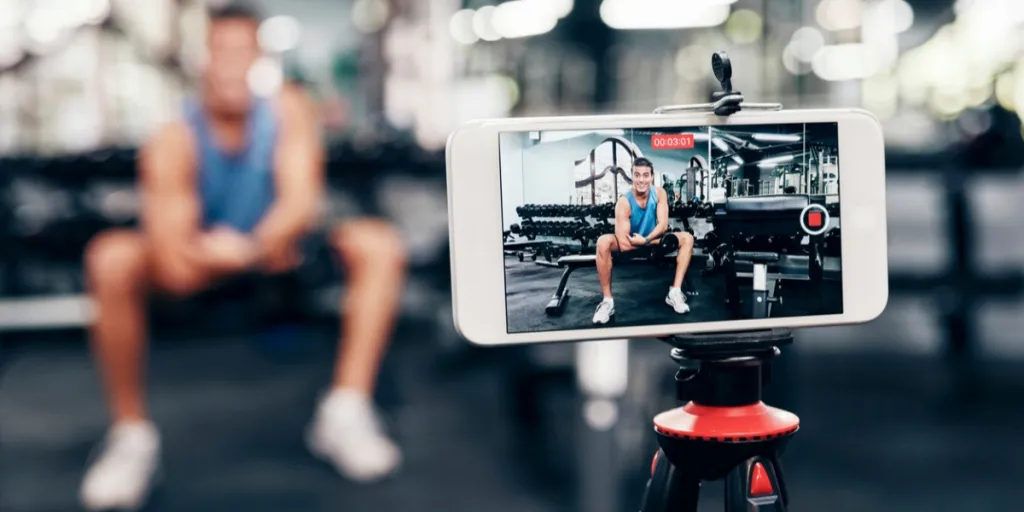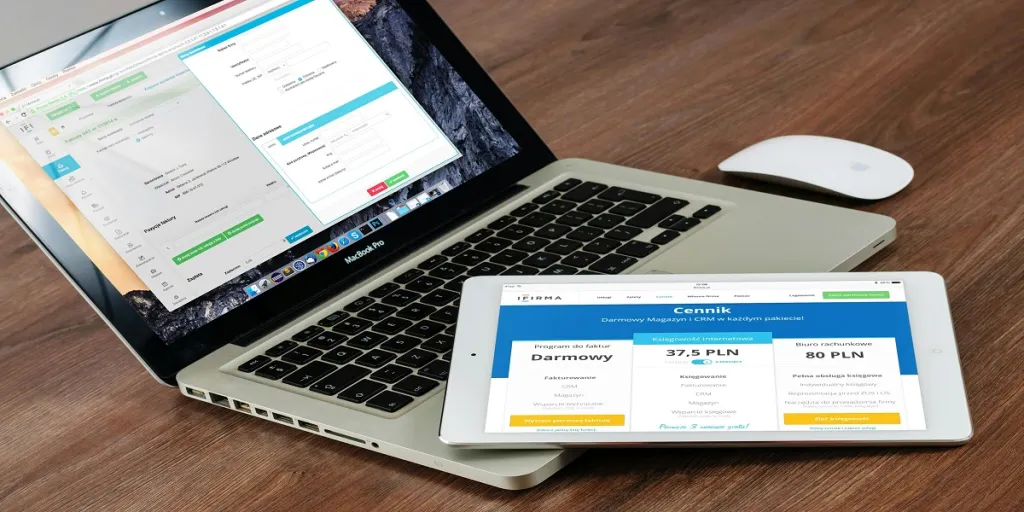You know that athlete influencers have a lot of sway in consumer purchasing decisions simply by the number of big companies that partner with them. You can probably think of at least three athletes whose faces you’ve seen in ads like Nike off the top of your head. While the influence of athletes on consumer behavior is undeniable, for smaller athletic businesses with limited budgets, the prospect of partnering with big-name professional athletes may seem financially daunting.
The good news is that there’s a wide array of sports influencers out there who can bring value to your brand without breaking the bank. In fact, partnering with smaller influencers yields significant benefits that go beyond just cost savings. That’s precisely what we are here to discuss—the power of the micro-influencer and who you should be looking to partner with as an athletic-focused business in 2024.
Table of Contents
Micro-influencers: The power of the niche
Affordable micro-influencers for athletic businesses
How to find local athletics and amateur sports teams to partner with
Final thoughts
Micro-influencers: The power of the niche
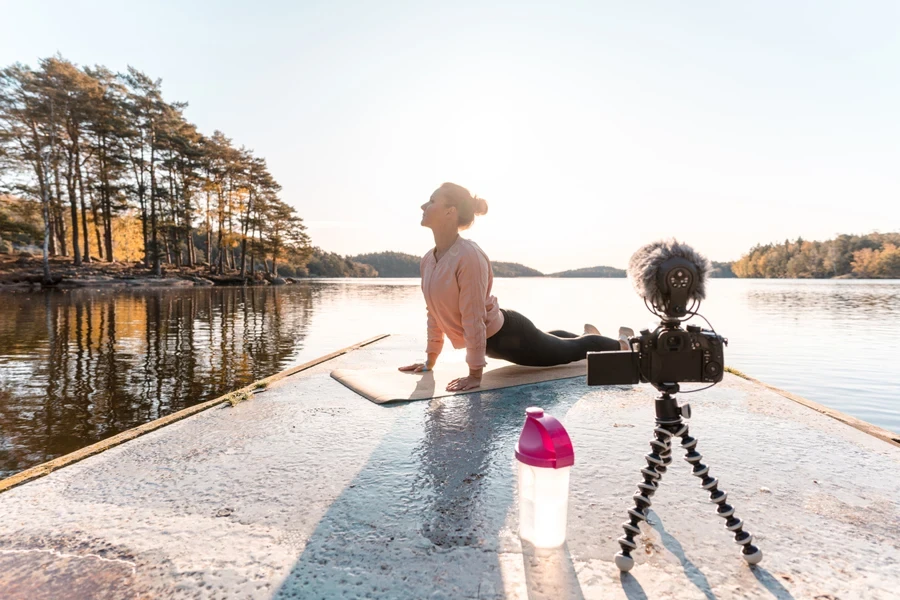
Micro-influencers with smaller but highly engaged followings within specific niches can be a goldmine for smaller businesses.
While they may not have millions of followers like professional athletes, their audience is often highly targeted and deeply interested in the sports or activities they represent. For example, a local fitness enthusiast with 5,000 dedicated followers may have a more significant impact on driving sales for your yoga apparel brand than a celebrity with a broader, less engaged audience.
According to a study by Influencer Marketing Hub, micro-influencers tend to have significantly higher engagement rates, with 22.2% more weekly conversations than macro-influencers.
Affordable micro-influencers for athletic businesses
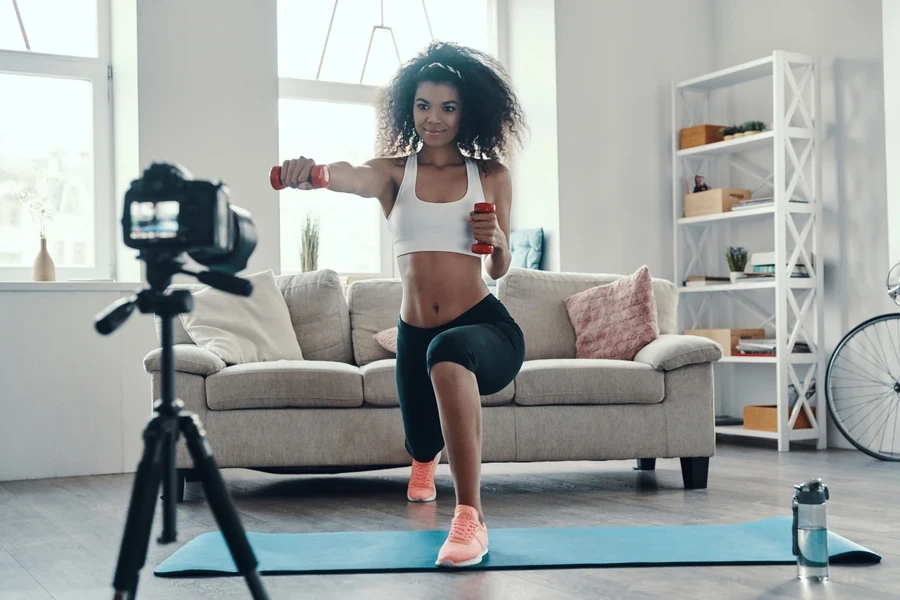
If you’re considering partnering with influencers, it’s essential to start thinking about what kinds of micro-influencers would best align with your brand and business. Here are a few ideas of where to get started thinking about the types of micro-influencers you might want to partner with:
#1 Local athletes
Consider local athletes or sports teams within your community. These individuals often have strong ties to their local fan base and can help your brand establish a meaningful connection with the community. According to Nielsen, 92% of consumers trust recommendations from people they know, making local athletes a trusted source of influence within their communities.
Whether it’s sponsoring a local sports team’s jerseys or collaborating with a hometown hero on social media content, these partnerships can generate significant goodwill and brand loyalty among local consumers.
#2 Fitness enthusiasts
Today, authenticity is more important than almost anything else in social media. A survey by Stackla found that 86% of consumers say authenticity is important when deciding what brands they like and support.
Instead of focusing solely on follower count, look for influencers who embody your brand’s values and resonate with your target audience. Fitness enthusiasts who document their personal fitness journeys on platforms like Instagram and YouTube can be incredibly effective brand ambassadors, particularly if they align with your brand’s mission and values.
What kinds of fitness enthusiasts should you consider?
Lots of different types of athletes document their journey on social media, so depending on your business, you may want to consider:
- Marathon runners
- Weightlifters
- Cyclists
- Dancers
- Yoga enthusiasts
- Swimmers
Influencer: SarahFit
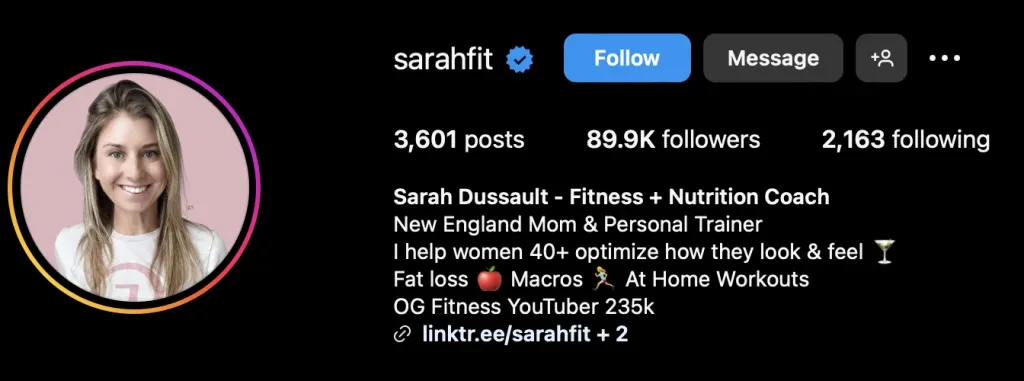
SarahFit is a fitness YouTuber and Instagram influencer known for her realistic approach to fitness and healthy living. She shares workout routines, meal prep ideas, and lifestyle tips that resonate with her audience of young adults striving to maintain a balanced lifestyle. Partnering with SarahFit could benefit a business looking to reach a millennial demographic interested in accessible fitness solutions and authentic brand endorsements.
#3 Personal trainers and coaches
Partnering with certified personal trainers and fitness coaches can give your athletic brand access to a dedicated audience seeking expert guidance and advice. These professionals often have a loyal client base who trust their recommendations for workout routines, nutrition plans, and fitness products.
Influencer: Coach Maria, Certified Personal Trainer
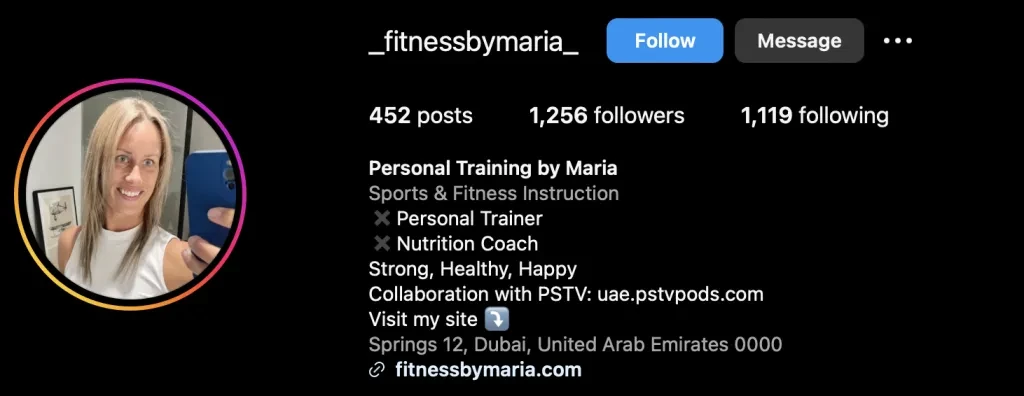
Coach Maria is a certified personal trainer with a loyal client base and a reputation for delivering results. She offers online coaching services, workout programs, and nutrition advice to clients looking to achieve their fitness goals. Partnering with Coach Maria would give your business access to a dedicated audience seeking expert guidance and trustworthy recommendations for fitness products and services.
#4 Athletic bloggers
Athletic bloggers and content creators specialize in producing informative and engaging content related to sports, fitness, and active lifestyles. By partnering with these influencers, your brand can benefit from their expertise and reach a highly targeted audience interested in your products or services. And, according to a study by HubSpot, businesses that prioritize blogging are 13 times more likely to achieve a positive return on investment (ROI).
Some of the fitness enthusiasts mentioned above may also have a blog, so keep an eye out for those partnership opportunities.
Influencer: Run with Rachel (Running Enthusiast and Marathoner)
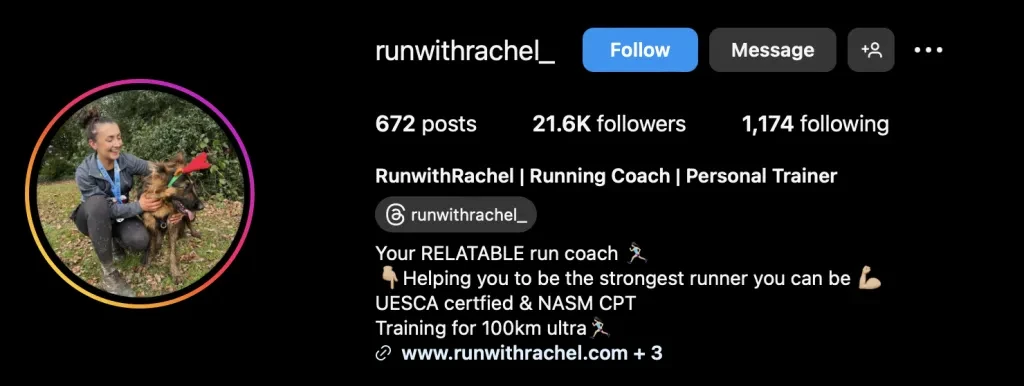
#5 Amateur athletes and sports teams
Amateur athletes and sports teams may not have the same level of fame as professional athletes, but they possess a unique authenticity and passion for their sport. Partnering with these individuals and teams can help your brand connect with grassroots sports communities and foster genuine relationships with your target audience.
How to find local athletics and amateur sports teams to partner with
Finding local athletes and amateur sports teams to partner with requires a combination of research, networking, and outreach efforts. Here are some strategies you can use to identify potential partners:
- Attend local sporting events: Attend local sporting events, games, and tournaments in your community to meet athletes and teams in person. This provides an opportunity to observe their performance, interact with players and coaches, and gauge their level of engagement with the community.
- Utilize social media: Use social media platforms like Instagram, Twitter, and Facebook to search for local athletes and sports teams in your area. Look for hashtags related to specific sports or teams, and explore profiles of individual athletes or team accounts to learn more about their activities and community involvement.
- Connect with local sports organizations: Contact local sports organizations, clubs, and leagues to inquire about potential partnership opportunities. These organizations often have connections with athletes and teams in the community and can facilitate introductions or provide recommendations for suitable partners.
- Engage with local sports communities: Join online forums, groups, or communities dedicated to sports and athletics in your area. Participate in discussions, ask for recommendations, and share your interest in collaborating with local athletes and teams. This can help you connect with individuals actively involved in the local sports scene.
- Partner with sports facilities and gyms: Collaborate with local sports facilities, gyms, and fitness centers to identify athletes and teams who frequent these establishments. These venues often host training sessions, competitions, and events where you can meet athletes and establish partnerships.
Once you’ve identified potential partners, contact them directly via email, social media, or phone to introduce your business and express your interest in collaborating. Be clear about the benefits of the partnership and how it aligns with their interests and goals. Personalize your outreach efforts to demonstrate genuine interest and enthusiasm for working together.
Final thoughts
While partnering with big-name professional athletes may be out of reach for smaller athletic businesses, there are plenty of alternative options that can deliver significant ROI.
By leveraging the power of micro-influencers, tapping into the community connection of local athletes, and prioritizing authenticity over celebrity, your brand can effectively harness the influence of sports influencers to reach and engage your target audience.
Remember, it’s not always about the size of the influencer’s following but the depth of their connection with their audience and alignment with your brand’s values. And finally, if you want to ensure you get the latest in essential marketing updates, don’t forget to follow Alibaba.com Reads for more!
